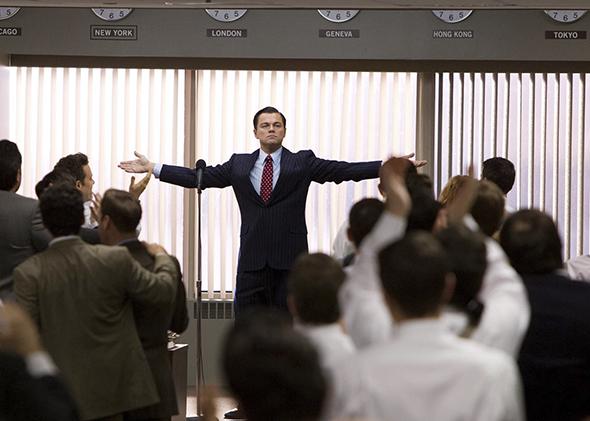Dear Wesley, Stephanie, and Mark:
This year, even more than usual, the start of Movie Club week feels to me like settling into a deliciously puffy armchair with a tumbler of grog (laptop on lap, of course, and Blu-Ray remote in hand). So many beautiful, powerful, difficult movies to take apart and discuss, plus the luxury of a week in the company of three critics who I feel like I’m in imaginary conversation with all year. This is the life! Let’s get started.
This was a year in which many of the big ongoing debates about individual movies held my attention, because they hinged not just on differences of personal taste but on complex questions that seemed permanently unsettle-able. Did knowing that Abdellatif Kéchiche allegedly browbeat his two lead actresses during the filming of Blue Is the Warmest Color take away from or enhance your enjoyment of their fiercely intimate performances? Was Martin Scorsese’s Wolf of Wall Street a critique of capitalist masculine privilege, or a three-hour-long feast on the goodies such privilege can buy? Did Alfonso Cuarón’s Gravity stun you with its cinematographic innovation and eerie evocation of the infinitude of space, or did the clunky Bullock-Clooney banter have your eyes rolling in bigger arcs than that cloud of hurtling space debris? Was Steve McQueen’s 12 Years a Slave a brilliant, groundbreaking treatment of the lived reality of slavery, or did the director’s insistence on exposing both characters and audience to the maximum amount of suffering per frame at times verge on sadistic miserablism?
The answers, for me, are: both, both, both, and both (though the last “both” is qualified by an “I’m not sure yet”—I plan to watch 12 Years a Slave again during the course of this week’s conversation, because it’s a movie that clobbers the viewer too hard emotionally the first time around to allow for much critical distance). This was a year of movies that took unanswerability, complexity, “both”-ness, into serious account. What was The Act of Killing, Joshua Oppenheimer’s category-demolishing documentary about a group of former death-squad thugs in Indonesia, if not an exploration of the slippery continuum between reality and simulacrum, between the facts of the past (in this case, unspeakably horrible ones) and the inevitably fictionalized ways we remember them? On a very different, decidedly less nauseating plane, Sarah Polley’s dazzling Stories We Tell treated the same question. As she pieced together a long-submerged secret from her own childhood with a mix of interviews, archival footage and—aesthetic spoiler alert!—cleverly faked home movies in which an actress played her mysterious, now-deceased mother, Polley turned a quest to find the truth about her own past into a lapidary filmed essay about truth itself, in all its elusiveness and irreducible subjectivity.
Here are some things that I would love to have happen in the course of this year’s Movie Club: Stephanie, please gently mock any one of us namby-pambies—chiefly me—who swooned for Her, the rueful Spike Jonze human/software romance that The New Yorker’s Richard Brody has hilariously derided as “a feature-length kitten video.” Wesley, walk me through why Wolf of Wall Street needed that many repeated, unvarying scenes involving the mass ingestion of Quaaludes followed by the abuse of women, Velcro-clad dwarves, and hapless yacht captains. Mark, attempt to sway me from my not-all-that-fixed position that Shane Carruth’s Upstream Color goes sharply downhill after the first 20 minutes (especially after its hermetic but gifted director enters the scene as a hermetic and ungifted actor). And someone, anyone, remind me again why I’m supposed to get anything out of Harmony Korine’s Spring Breakers other than a mild, buzzing headache.
On to you, Wesley. Can’t wait to see where you’ll take the conversation—
Love,
Dana
P.S.: You can find my top-10 list here, Stephanie’s here, Wesley’s here. Mark didn’t publish one this year, but obliged me with a list, which I include here in alphabetical order:
American Hustle
Before Midnight
Captain Phillips
Enough Said
Fruitvale Station
Gravity
Her
Nebraska
Short Term 12
Upstream Color
